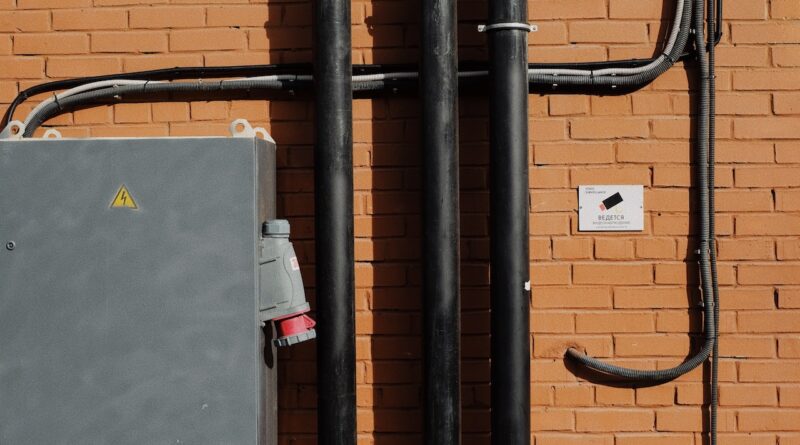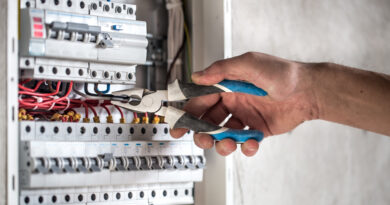Safety First: Understanding the Significance of Electrical Safety Audits in Faridabad
Introduction
Electrical safety is a crucial aspect of any workplace or residential setting. It is essential to prioritize safety to prevent accidents, injuries, and even fatalities caused by electrical hazards. In Faridabad, a rapidly growing industrial hub in India, ensuring electrical safety is of utmost importance. One of the key tools in maintaining a safe electrical environment is through regular electrical safety audits. In this article, we will explore the significance of electrical safety audits in Faridabad and understand why they are essential for both businesses and individuals.
Table of Contents
- Understanding Electrical Safety Audits
- What are Electrical Safety Audits?
- Importance of Electrical Safety Audits
- Components of an Electrical Safety Audit
- Evaluation of Electrical Systems
- Inspection of Electrical Equipment
- Identification of Potential Hazards
- Benefits of Electrical Safety Audits
- Prevention of Electrical Accidents
- Compliance with Safety Regulations
- Protection of Life and Property
- Hiring a Professional Electrical Safety Audit Firm
- Qualifications and Expertise
- Reputation and References
- Comprehensive Audit Reports
- Implementing Recommendations from the Audit
- Prioritizing Safety Measures
- Addressing Identified Hazards
- Regular Maintenance and Monitoring
- Frequently Asked Questions (FAQs)
- What is the role of an electrical safety audit?
- How often should electrical safety audits be conducted?
- Can businesses conduct internal safety audits?
- Are electrical safety audits mandatory in Faridabad?
- What are the common electrical hazards found during audits?
- Conclusion
- FAQs
- What should I do if I discover electrical hazards during an audit?
- How long does an electrical safety audit typically take?
- Are there any legal consequences for non-compliance with safety regulations?
- Can I conduct an electrical safety audit on my own?
- Is it necessary to conduct regular follow-up audits?
1. Understanding Electrical Safety Audits
What are Electrical Safety Audits?
Electrical safety audits are comprehensive assessments conducted to evaluate the electrical systems and equipment in a given setting. These audits are designed to identify potential electrical hazards and ensure compliance with safety regulations. By examining the electrical infrastructure, equipment, and maintenance practices, audits provide valuable insights into the safety status of a workplace or residential property.
Importance of Electrical Safety Audits
Electrical safety audits are crucial for maintaining a safe working or living environment. They help identify existing hazards, potential risks, and deficiencies in electrical systems. By addressing these issues, audits contribute to the prevention of accidents, electrical fires, and equipment failures. Moreover, electrical safety audits ensure compliance with relevant safety standards and regulations, reducing legal liabilities and penalties.
2. Components of an Electrical Safety Audit
An electrical safety audit typically involves several key components to thoroughly assess the electrical infrastructure and equipment.
Evaluation of Electrical Systems
During an audit, the electrical systems, including wiring, distribution panels, and grounding, are evaluated for their efficiency and compliance with safety codes. Any deviations or faults are documented for further action.
Inspection of Electrical Equipment
The audit involves inspecting electrical equipment, such as motors, generators, switches, and control panels, to ensure they are in good working condition. Any signs of wear and tear, improper installation, or lack of maintenance are noted.
Identification of Potential Hazards
Hazards such as inadequate insulation, overloaded circuits, exposed wiring, or improper use of electrical equipment are identified during the audit. These hazards can lead to electrical shocks, fires, or other accidents.
3. Benefits of Electrical Safety Audits
Prevention of Electrical Accidents
Regular electrical safety audits significantly reduce the risk of electrical accidents. By identifying and rectifying potential hazards, audits help create a safe environment for workers, residents, and visitors. This prevention leads to a decrease in accidents, injuries, and even fatalities.
Compliance with Safety Regulations
Electrical safety audits ensure compliance with relevant safety regulations and codes. By adhering to these standards, businesses and individuals avoid legal issues, penalties, and damage to their reputation. Compliance also promotes a culture of safety within an organization or community.
Protection of Life and Property
Electrical accidents can have devastating consequences, including loss of life and property damage. Electrical safety audits provide an opportunity to mitigate these risks by addressing potential hazards and implementing necessary safety measures. This protection safeguards not only individuals but also valuable assets.
4. Hiring a Professional Electrical Safety Audit Firm
To conduct a comprehensive electrical safety audit, it is advisable to hire a professional firm with expertise in electrical safety.
Qualifications and Expertise
When selecting an audit firm, ensure they have qualified electrical engineers or professionals with relevant experience. Their expertise will ensure accurate assessments and recommendations.
Reputation and References
Research the reputation of the audit firm by checking client testimonials and references. A reputable firm with a track record of successful audits is more likely to deliver reliable results.
Comprehensive Audit Reports
Choose an audit firm that provides detailed audit reports outlining identified hazards, recommended actions, and compliance status. These reports serve as essential references for implementing necessary safety measures.
5. Implementing Recommendations from the Audit
After completing an electrical safety audit, it is crucial to take prompt action on the identified recommendations.
Prioritizing Safety Measures
Assess the audit report and prioritize the recommendations based on the severity and potential risk they pose. Address critical issues immediately to minimize the chances of accidents or equipment failures.
Addressing Identified Hazards
Take the necessary steps to rectify the identified hazards. This may involve repairing faulty equipment, replacing outdated wiring, or implementing additional safety measures such as grounding and insulation.
Regular Maintenance and Monitoring
To sustain electrical safety, establish a regular maintenance schedule for equipment and systems. Conduct periodic checks to ensure compliance with safety standards and promptly address any new hazards that may arise.
6. Frequently Asked Questions (FAQs)
1. What is the role of an electrical safety audit?
An electrical safety audit evaluates electrical systems and equipment to identify hazards and ensure compliance with safety regulations. It plays a crucial role in preventing accidents and promoting a safe environment.
2. How often should electrical safety audits be conducted?
The frequency of electrical safety audits depends on factors such as the nature of the setting and the electrical infrastructure. Generally, audits should be conducted annually or whenever significant changes occur.
3. Can businesses conduct internal safety audits?
While businesses can conduct internal safety audits, it is recommended to hire external professionals for unbiased assessments. External auditors bring expertise and an objective viewpoint to the process.
4. Are electrical safety audits mandatory in Faridabad?
While specific regulations may vary, it is generally advisable and recommended to conduct electrical safety audits in Faridabad to ensure compliance with safety standards and reduce the risk of accidents.
5. What are the common electrical hazards found during audits?
Common electrical hazards identified during audits include inadequate insulation, overloaded circuits, improper grounding, exposed wiring, faulty equipment, and inadequate maintenance practices.
7. Conclusion
Electrical safety audits are invaluable in ensuring a safe environment in Faridabad. By conducting regular audits, businesses and individuals can identify and address potential electrical hazards, thereby reducing the risk of accidents, injuries, and property damage. These audits help maintain compliance with safety regulations and promote a culture of safety in both workplaces and residential settings.
Implementing the recommendations from an electrical safety audit is crucial to maintaining a safe electrical environment. By prioritizing safety measures, addressing identified hazards, and establishing regular maintenance and monitoring practices, individuals and businesses can ensure the ongoing safety of their electrical systems.
In conclusion, electrical safety audits are an essential tool in Faridabad for preventing electrical accidents, complying with safety regulations, and protecting both life and property. By prioritizing safety and taking proactive measures to address potential hazards, businesses and individuals can create a secure environment for all. Invest in electrical safety audits and prioritize safety first.
FAQs
- What should I do if I discover electrical hazards during an audit?
If you discover electrical hazards during an audit, it is important to take immediate action. Ensure that the area is secured and isolated from access. Contact a qualified electrician or electrical safety professional to address the hazards and rectify the issues identified.
- How long does an electrical safety audit typically take?
The duration of an electrical safety audit depends on the size and complexity of the setting being audited. It can range from a few hours for a small residential property to several days for a large industrial facility. The audit firm will provide an estimated timeline based on the specific requirements.
- Are there any legal consequences for non-compliance with safety regulations?
Yes, non-compliance with safety regulations can lead to legal consequences. In Faridabad, as well as many other jurisdictions, there are laws and regulations in place to ensure electrical safety. Failure to comply with these regulations can result in penalties, fines, legal action, and even closure of the business.
- Can I conduct an electrical safety audit on my own?
While individuals can perform basic visual inspections to identify obvious hazards, it is advisable to hire professional electrical safety audit firms for comprehensive assessments. Professionals have the necessary expertise, tools, and knowledge to conduct thorough audits and provide accurate recommendations.
- Is it necessary to conduct regular follow-up audits?
Yes, conducting regular follow-up audits is essential to ensure that the recommended safety measures have been implemented and are effective. Follow-up audits help verify compliance, identify any new hazards that may have arisen, and ensure that the electrical systems and equipment remain safe over time.




